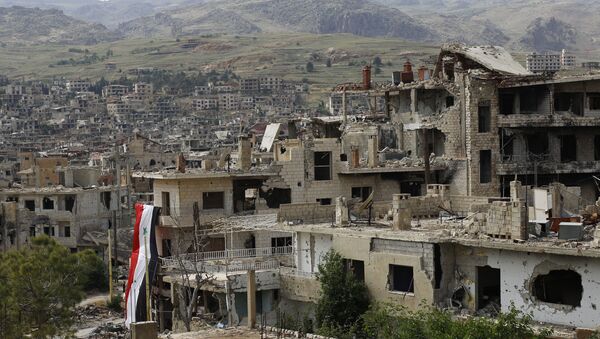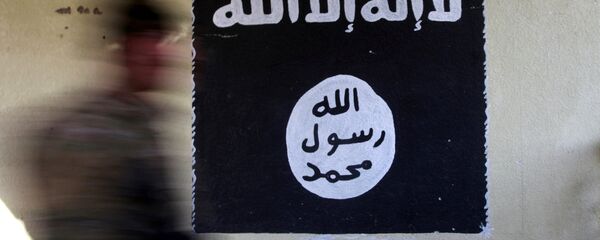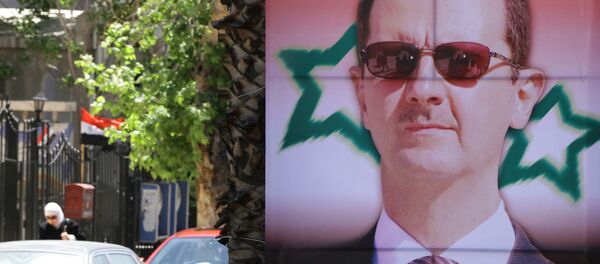Prior to the outbreak of nationwide unrest in 2011, the FTC, which was founded in 1964, employed around 600 permanent staff, plus hundreds of contractors on a project-by-project basis. The FTC was involved in the construction of the sports city complexes for the Pan Arab Games in the 1970s, and more recently, built the Four Seasons hotel in Damascus, as well as dozens of large industrial projects and facilities, aiding consistent economic growth.
The ongoing civil war in Syria has left many parts of the country in ruins, while triggering an unprecedented refugee crisis, with millions internally and externally displaced. Syria's coastal region has proven to be the location of choice for internally displaced Syrians to resettle, as it has largely escaped the raging conflict, and continues to benefit from the provision of public services.
Many have settled in refugee camps, while others, primarily from Syria's extensive middle class, turned to the private property market.
"The market for newly-built properties in safe areas, such as Tartus Province, saw a heightened level of activity in response to the high numbers of internally displaced Syrians who had to flee the conflict zones of Homs and Aleppo, especially in the initial years of the war. Meanwhile, in Damascus, demand to rent existing houses in the safe districts of the city, where many landlords had vacated their homes and left the country, soared. Most of the tenants came from embattled parts of the city, and from other parts of Syria, such as Aleppo, Homs, Raqqa and more recently, Deir ez-Zor," Omar Fouad Takla told Sputnik.
Despite Syria's weakened construction capabilities, Mr. Fouad Takla expressed optimism in the industry's and government's ability to redevelop the embattled state.
"When violence engulfed Syria in 2011, we were involved in several major projects in Aleppo, Homs and Damascus. All three sites in Aleppo and Homs were attacked and occupied by armed groups during the conflict. Once the government regained control over the sites, it transpired that all the machinery and equipment was gone. Anything with any kind of value was dismantled and stolen. The site in Damascus was not over-run, but the project was suspended in 2012 due to the crisis.
"Despite the flight of many of Syria's construction engineers, technicians, and workers, I believe that the remaining human resources are able to deal with the challenges of reconstruction, as long as the conflict ends and financing is available," Mr. Fouad Takla told Sputnik.
Securing funding for the reconstruction effort will perhaps be the largest challenge for the Syrian government, who are looking more and more likely to emerge in control of much of the country.
Syria is unlikely to be the recipient of post-war financial aid from Europe or the US, as such aid is likely to be contingent on President Bashar al-Assad leaving office — something he has explicitly said he won't do.
"The conflict is still ongoing, but the damages which have been inflicted on the oil, gas and power sectors alone run into the tens of billions of dollars," Mr. Fouad Takla said.
Despite Europe's stance against Assad, it remains in its interests to support a swift recovery in Syria, as many EU states have been overwhelmed by refugees in recent years, many of whom are Syrian.
Oil-rich GCC countries, which have staunchly backed the Syrian opposition, including groups looking to establish a caliphate in Syria, are likely to take a similar stance to Europe and the US. Qatar, which feels it has been scapegoated by its traditional regional allies, could be the exception, as it looks to forge new relations in the region.
The proposed Qatar-Turkey pipeline was met with opposition from Syria, and it remains unlikely that Syria would agree to such a project, even in exchange for financial aid, as it would undermine Russia's dominance over the European natural gas market.
"Syria's construction industry is at a key juncture because it is in dire need of financing at a time when the prevailing regional and international economic and political environment is unfavorable. Whoever steps in to provide this much-needed financing will be able to exert influence over development of the industry.
"Therefore, it is of utmost importance that the government manages the process of reconstruction with confidence and remains relatively immune to the influence of foreign financiers and investors," Mr. Fouad Takla told Sputnik.
Given the extent of the damage inflicted, Syria's closest allies, Russia and Iran, are unlikely to be willing or able to bankroll nationwide reconstruction, especially when their domestic economic turmoil is considered.
India and China have maintained diplomatic relations with Syria, with China also vetoing two resolutions at the UN Security Council. China, with over US$3 trillion in foreign currency reserves, is well-positioned to provide meaningful financial support, but it remains unclear if there is significant Chinese interest in such a deal. Furthermore, the east-Asian economic superpower has accumulated large amounts of national debt, as they relentlessly pursued economic growth and development, so the Republic's scope for investment abroad is somewhat limited.
"Damascus has led efforts to revive the real estate sector by encouraging land owners and investors to build in the newly-planned neighborhood of Marota, which lies in the Razi orchards next to the Mazzeh district. The President issued a special decree to regulate the planning and development process for this vast neighborhood in the Syrian capital. Governors of other cities are planning their own version of this type of real estate development," Mr Fouad Takla told Sputnik.
In a bid to encourage domestic investors to contribute to the redevelopment and reindustrialization initiative, the Syrian government recently announced plans to make industrial goods exempt from import duties, and is continuing to formulate other investment-catalysing policies.
With financial support from the US and Europe looking unlikely, Syria may seek to strike an opportunistic deal with Qatar, or look to the BRIC nations. Crucially, the government needs to create the right conditions to incentivise and instigate investment, both domestic and foreign.
"Our company's motto is 'Building for a Better Syria,' and we shall endeavor to confront the challenges ahead with the resources at hand to uphold our mission as best as we can," Mr. Fouad Takla concluded.
The views expressed in this article are solely those of the author and do not necessarily reflect the official position of Sputnik.



